‘Some things will change permanently because of the coronavirus crisis’
-
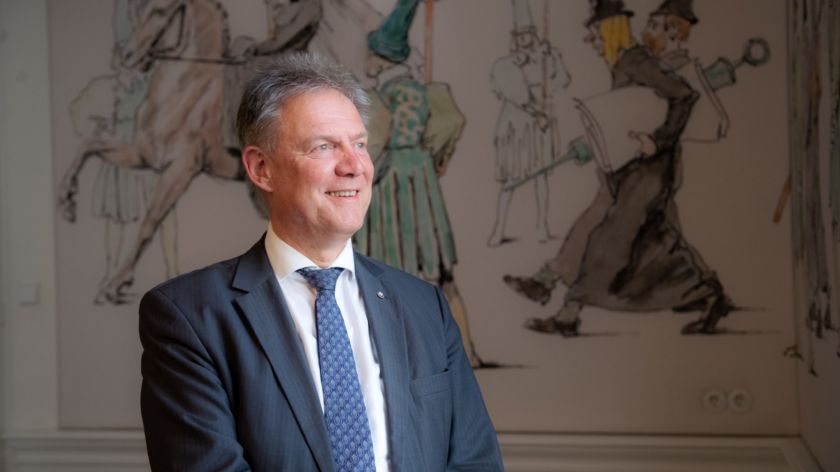 Han van Krieken. Photo: Bert Beelen
Han van Krieken. Photo: Bert Beelen
In the coming months, Radboud University will have to find its way out of the coronavirus crisis, step by step. But things are far from being the same as they were before the crisis, and they will still be that way in the new academic year. Rector Han van Krieken: ‘I assume that employees will still have to work from home after 1 September.’
A living document is what Rector Han van Krieken called the university’s restart plan, which was presented today. ‘As soon as there are new measures, it will be adjusted again. We would like to offer certainty about everything, but that’s impossible.’
According to the plan, there will be a mix of physical and online education in the new academic year. During the meeting with the participational bodies on Monday, you said that the quality of education must be as high as it was before the coronavirus crisis.
‘We’ll soon have physical contact hours, but there’ll be fewer of them than before the crisis. Moreover, some of the students or lecturers will not be there due to health problems, so every lecture should also be available online. We have to make it easy for students with symptoms to stay home. That also applies to lecturers who have a cold; they shouldn’t feel the urge to come to campus.’
Extended term
Han van Krieken has been rector of Radboud University since 2016. Earlier this month, the university announced that his term of office will be extended by another four years. Van Krieken is Professor of Pathology and was chair of the Radboud university medical center’s Centre for Oncology before his rectorship.
‘Within higher education, there are many concepts we could look at that might help us keep the quality high: from the problem-based education in Maastricht to the mentoring system at Oxford and Cambridge, where you discuss your progress in a small group with a tutor every day.’
‘A workgroup will develop this further with the Teaching and Learning Centre. They will also set up frameworks: for example, about the space that is available on campus. How many students can be there at the same time and who gets priority? Extra focus will be given to the first-year Bachelor’s and Master’s students because they have to learn to study in a different way.’
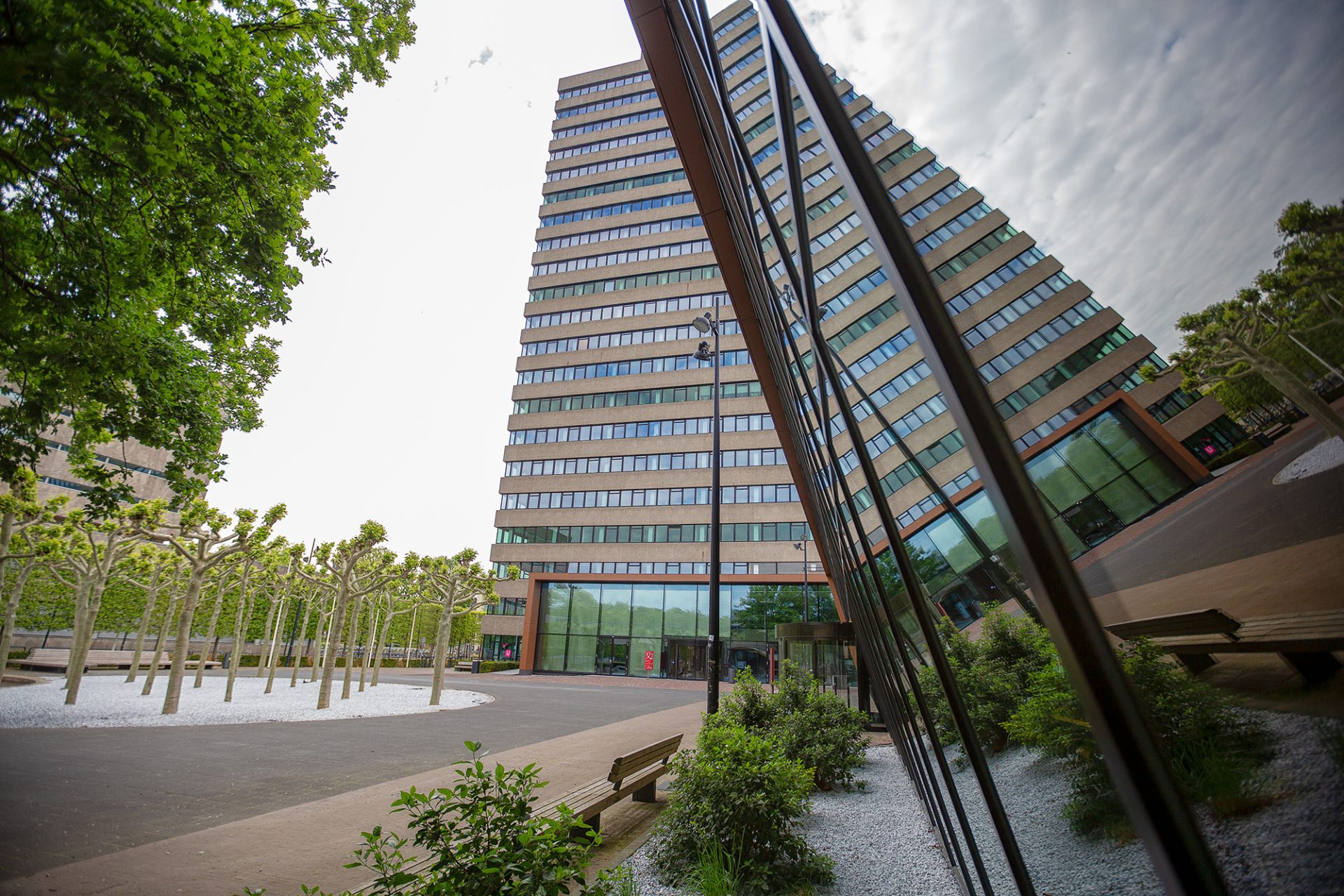
Do you believe that the quality of education can be as high as it was before the coronavirus crisis?
‘Yes, but I also know that things will not work equally quickly everywhere. Usually you take a number of years for a large-scale review of the curriculum: in Medicine, it took more than four years. We don’t have that kind of time. A lot is already being asked of lecturers. They should get time for a holiday in the summer. Nevertheless, I think a lot will work out fine.’
Because of the coronavirus crisis, extra demands are being placed on employees. How are you going to ensure they do not get massively overworked?
‘We have always monitored absenteeism due to illness and so far, we have hardly seen any increase. It is very important that employees discuss this with their supervisors. And that’s why we’re calling for everyone to take a holiday.’
Education will also be more online next year. Adding this to the fact that the orientation week and student life will look different, would it not be better as a student to postpone studying for a year?
‘I understand the students’ considerations, but I don’t think it will be that bad. If there’s a second wave of infections, it gets more complicated. You can wait a year to study, but we don’t know if there will be a vaccine then. Besides, you can’t go backpacking for a year now either – unless you want to go to the Achterhoek.’
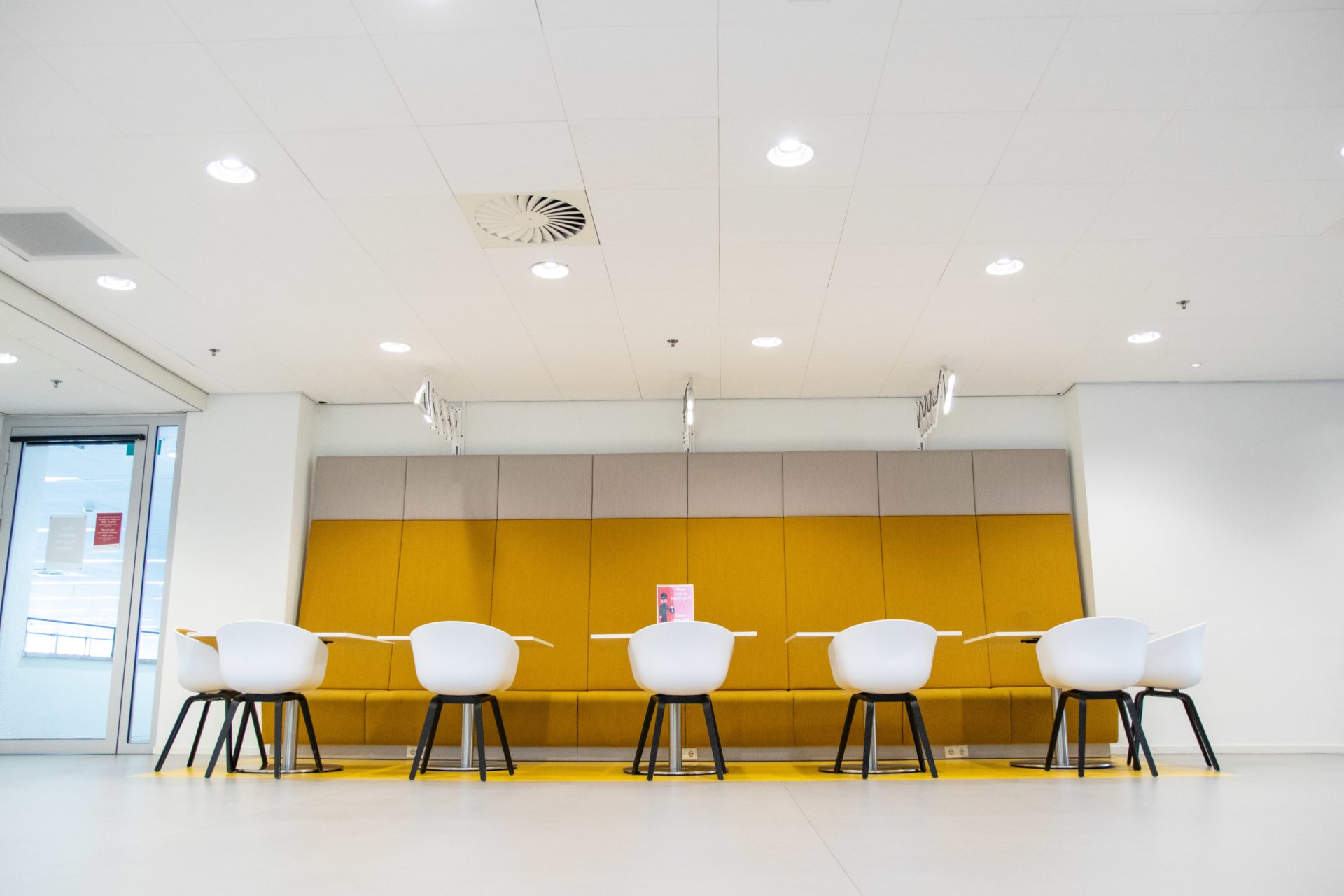
‘We will still offer a good programme, but it will be different than usual. The 1.5-metre rule will be around for a while, but I have high hopes that everyone can be on campus regularly. We guarantee good education and good guidance.’
The orientation week is the time to make friends. Are you not concerned that there is going to be a corona generation out there that did not get a normal intro?
‘I’m committed to the idea that the intro groups will see each other every day, although probably not all day. An hour can already make a difference. Not all of that has to be done on campus. The groups are not very large, so they can meet in other places as well. That would be a good way to get to know some people in your programme. The orientation will not be fully moved online, but it’s obvious that the festival and the market will not be able to go forward.’
Do you have any idea of the consequences the 1.5-metre rule will have for working on campus? According to the restart plan, employees will be welcome back on campus from 1 September, but is that possible?
‘That’s not entirely true. Until 1 September, employees must work from home if they can. I’m assuming that rule will still be in force after 1 September.’
‘One of the biggest obstacles to working and studying on campus is the flow of transport. We need to organise it so public transport can handle it. That’s another area where we need to set priorities.’
‘That’s why we’re investigating whether we can start working with time slots for departments, so they can be on campus together at some point during the week. It’s important to be able to look each other in the eye from time to time. Some things cannot be done as well from home.’
Which activities will be given priority on campus after 1 September?
‘In research, the emphasis will be on what can only be done on campus: laboratory work, for example. The capacity of the classrooms is at most 20 percent of what it was before the coronavirus crisis. But if we work in shifts and work longer days, we can ensure that all students receive on-campus lectures at least once a week. And more often for first-year Bachelor’s and Master’s students.’
One solution you are considering is to rent the concert hall De Vereeniging. Are other places on the agenda?
‘We’re working on that. We are in close contact with De Vereeniging and the Municipal Theatre, but we are investigating many other possibilities. Perhaps we could set up tents for classes, in Park Brakkenstein, for instance.’
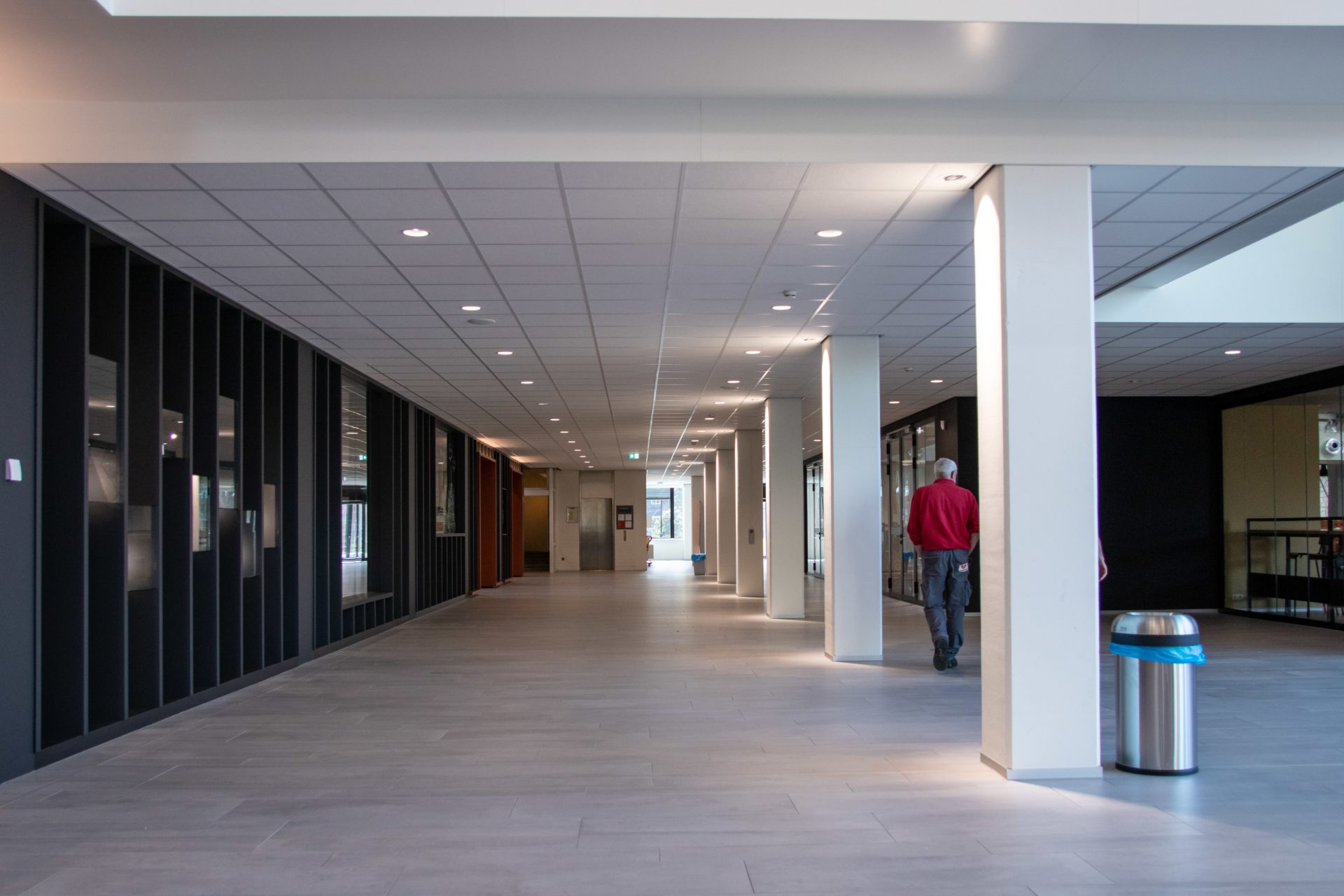
Will life on campus ever be the way it was?
‘I’m confident that a good vaccine will come, but some things will change permanently. Online is going very well, which may mean that we will have to travel less in the long run.’
If public transport is such a big stumbling block, why not tell people that they can come to campus but not by public transport?
‘Not that many people come to campus by public transport. Most people cycle. We have already purchased new bike racks, because the bike sheds will fill up quickly. I’m worried about the number of parking spaces if a lot of people start coming by car.’
‘At the same time, when you see how many people cycle on the Heyendaalseweg at 5 pm, there is really not enough distance between them. It’s another reason for us to say we’ll have to stagger the number of people on campus.’
The government has said that teaching can only start between 11 am and 3 pm and after 8 pm. Will there be a lot of evening lectures?
‘The government allows other regional agreements to be made. I don’t think the transport operators we’re talking to want all our lectures to start at 11 am either. It would be better for us start new lectures every hour.’
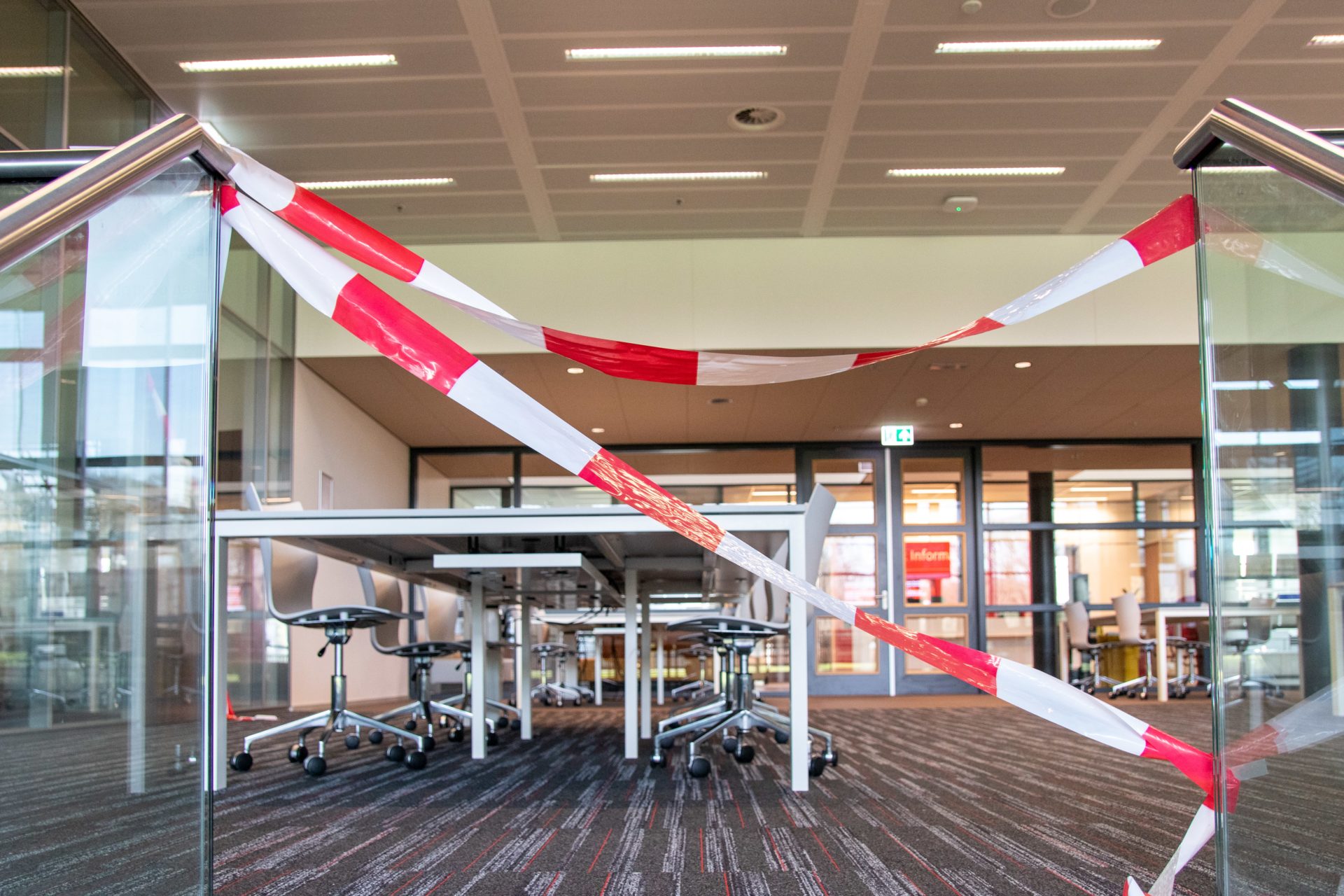
‘But there will certainly be lectures at less popular times, such as Friday at 6 pm. As a lecturer or student, I wouldn’t be happy about that either, but we have to use the space. I don’t think we want to go into the weekend for education. That’s different for research. PhD candidates hope to be able to work in shifts, with a first shift starting early in the morning and a second one going until late in the evening. That would be ideal for public transport.’
How do you want to keep an eye on all this? Seven faculties, thousands of students and employees.
‘There will certainly be counts in public transport – that has happened before. A few years ago, we already looked at how we could better stagger the transport. We know how to do that. We are also looking into the possibility of working with a card system for the laboratories. At the moment, everyone who goes in is registered at the entrance. That’s not going to work with large numbers, but maybe we can come up with a system for that.’
The buildings on campus are slowly getting busier. Are you concerned about that?
‘That’s partly because the working from home situation is not ideal for everyone. But we also see people who really should be at home. We’ll keep communicating well about it. There is no reason to be stricter about this at the moment, but we have to keep a close eye on it.’
How does the university want to deal with people over the age of 60 or people with vulnerable family members? At the moment, everyone understands that they are staying at home, but will it stay that way?
‘As an employer, we must do everything we can to allow people to work as safely as possible. Tailor-made solutions will also be required.’
‘I’m over 60 myself. When I’ve spent a whole day at the computer, I can’t prepare pieces in the evening as quickly as I used to. We’ll have to live with that consequence until the situation returns to normal. Many people have an awful lot of work, others a little less. We need to look at how we can spread that out.’



